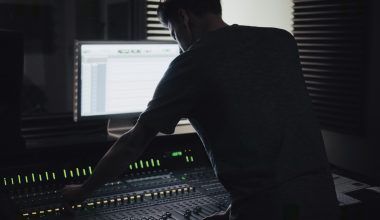If you love music, you’ve probably heard the term “musiclabel” tossed around. But what exactly is a musiclabel? At its core, a music label—sometimes called a record label—is a company that helps artists create, promote, and distribute their music to the world. musiclabel play a crucial role in the music industry, often acting as a bridge between artists and their audience.
Think about your favorite song. Chances are, a music label was behind its success. Labels work with artists to produce high-quality tracks, create music videos, and manage marketing campaigns. They also handle things like licensing, copyright, and distribution, making sure the music reaches streaming platforms, radio stations, and stores.
But why does this matter? For artists, a musiclabel can provide the resources and connections needed to take their careers to the next level. For fans, labels ensure that we get access to the music we love, whether it’s through Spotify, Apple Music, or a physical vinyl record.
Types of Music Labels: Major vs. Independent
Not all musiclabel are created equal. There are two main types of labels: major labels and independent labels.
Major Music Labels
musiclabel are the giants of the music industry. Companies like Universal Music Group, Sony Music, and Warner Music dominate the market. These labels have massive budgets, extensive connections, and a global reach. Artists signed to major labels often get access to top-tier producers, high-quality recording studios, and big marketing campaigns.
However, working with a major label isn’t always perfect. Some artists feel they lose creative control or get overshadowed by bigger names on the label’s roster. Additionally, major labels often prioritize commercial success, which may not align with every artist’s vision.
Independent Music Labels
On the other hand, independent labels (or indie labels) are smaller companies that often focus on niche markets or specific genres. Indie labels are known for giving artists more creative freedom and a more personal touch. While they may not have the same resources as major labels, indie labels can be just as impactful, especially for artists looking to maintain their unique style.
Indie labels also tend to build strong, loyal communities around their artists. For fans, supporting an indie label often means discovering fresh, innovative music that might not make it to mainstream charts.
The Role of Music Labels in an Artist’s Career
If you’re an aspiring musician, you might wonder, “Do I really need a music label?” The answer depends on your goals, but here’s how a label can make a difference.
Funding and Resources
Creating high-quality music isn’t cheap. Recording studio time, mixing, mastering, and music videos all cost money. A music label can provide the funding you need to produce your best work. They also connect you with industry professionals, like producers, sound engineers, and photographers.
Marketing and Promotion
Releasing a song is just the beginning. To get noticed, you need a solid marketing plan. Music labels have teams dedicated to promoting artists through social media, press releases, interviews, and ad campaigns. They know how to create a buzz and ensure your music reaches the right audience.
Distribution and Licensing
One of the biggest challenges for independent artists is getting their music on platforms like Spotify, Apple Music, or even radio stations. Labels handle distribution, ensuring your tracks are available wherever people listen to music. They also deal with licensing, so you get paid when your songs are played or used in movies, commercials, or TV shows.
Artist Development
Beyond the business side, labels often invest in artist development. This means helping you grow as a musician, whether it’s through vocal coaching, songwriting workshops, or live performance training. A good label wants you to succeed and will guide you through every step of your career.
The Evolution of Music Labels in the Digital Age
The music industry has changed dramatically over the past few decades, and so have music labels. The rise of streaming platforms, social media, and digital tools has reshaped how music is created, distributed, and consumed.
Streaming Platforms and DIY Artists
Today, artists can upload their music directly to platforms like Spotify, YouTube, and SoundCloud without needing a label. This has led to a surge in independent artists finding success on their own. Tools like TikTok and Instagram have also allowed musicians to build their own audiences without traditional gatekeepers.
However, while going the DIY route offers freedom, it also comes with challenges. You’re responsible for everything—from production to promotion—which can be overwhelming. This is where music labels can still offer value by handling the business side, allowing artists to focus on their craft.
New Roles for Labels
Music labels have adapted to these changes by offering more flexible contracts and focusing on artist partnerships. Instead of signing artists exclusively, some labels now provide specific services, like marketing or distribution, on a case-by-case basis. This gives artists more control while still benefiting from the label’s expertise.
How to Get Signed to a Music Label
If you dream of being signed to a music label, it’s essential to understand what labels are looking for. Here are some tips to increase your chances:
Build a Strong Online Presence
In today’s digital world, your online presence is often your first impression. Make sure your social media profiles, website, and streaming platforms showcase your music and personality. Engaging with fans and sharing behind-the-scenes content can also make you more relatable and appealing to labels.
Create High-Quality Music
At the end of the day, it’s all about the music. Invest in professional recording and production to make your songs stand out. Focus on creating a unique sound that reflects your style and sets you apart from the crowd.
Perform Live
Live performances are a great way to connect with fans and showcase your talent. Playing gigs, open mics, and festivals can help you build a local following and catch the attention of scouts from music labels.
Network in the Industry
Building relationships with other musicians, producers, and industry professionals can open doors. Attend industry events, join music forums, and collaborate with others in the scene. You never know who might recommend you to a label.
Be Persistent
Getting signed to a music label takes time and effort. Don’t get discouraged if it doesn’t happen right away. Keep improving your craft, growing your audience, and reaching out to labels that align with your goals.
Independent Artists vs. Music Labels: Which Path is Right for You?
Choosing between staying independent and signing with a music label is a big decision. Both paths have their pros and cons, and the right choice depends on your career goals.
The Benefits of Staying Independent
- Creative Freedom: You have full control over your music and branding.
- Ownership: Independent artists retain ownership of their masters and copyrights.
- Flexibility: You can release music on your own schedule without external pressures.
The Benefits of Signing with a Label
- Resources: Labels provide funding, connections, and expertise.
- Promotion: Professional marketing can help you reach a larger audience.
- Team Support: Labels handle business tasks, so you can focus on making music.
Ultimately, there’s no one-size-fits-all answer. Some artists thrive independently, while others achieve greater success with the backing of a music label.
The Future of Music Labels
As technology continues to evolve, so will musiclabel. Artificial intelligence, virtual reality, and blockchain are already making waves in the industry. Labels are exploring these innovations to find new ways to support artists and engage fans.
For example, blockchain technology could revolutionize royalty payments, ensuring artists get paid faster and more transparently. Virtual reality concerts and AI-generated music are also opening up exciting possibilities for the future of entertainment.
While the music industry will continue to change, one thing remains constant: the need for musiclabel to adapt and innovate. Whether you’re an artist or a fan, it’s an exciting time to be part of the music world.
For further reading, explore these related articles:
- Taylor Swift Spotify Streams: How She Became the Queen of Streaming
- Mo Bamba Lyrics: The Story of a Song That Took the World by Storm
For additional resources on music marketing and distribution, visit DMT Records Pvt. Ltd..






